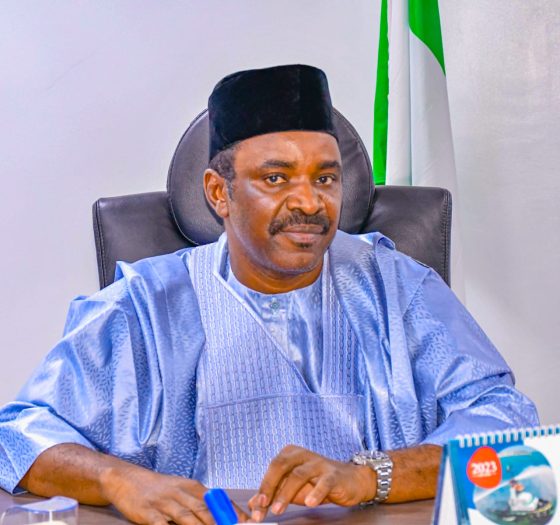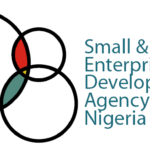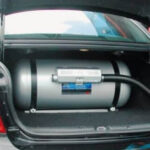The Minister of Transportation, Senator Sa’idu Ahmed Alkali, in this interview addresses the issues around the unbundling of the railway sector, the recent derailment across some corridors, and the role his ministry is playing to address ripple effects of the subsidy removal on petroleum products, among others.
What efforts is the Ministry of Transport undertaking to address the ripple effects of the subsidy removal on petroleum products, particularly in the transport sector?
Through the Institute of Transport Technology in Zaria, we’ve initiated efforts to convert petrol-based vehicles to Compressed Natural Gas (CNG). We have one conversion centre in Zaria and another in Abuja, with plans to establish additional centres in Enugu and Lagos soon. Progress may be gradual, but the journey of a thousand miles begins with a single step. As we expand, our goal is to cover all states across the federation.
Upon successful conversion to CNG, car owners should expect significant savings. For instance, the cost to refill a converted vehicle’s cylinder and the distance it will cover offer around 300 to 400 per cent savings compared to petrol or diesel.
There’s considerable discussion about CNG, yet the Ministry of Transport isn’t frequently mentioned. What specific role is your ministry playing?
As Minister of Transportation, my role is to ensure synergy between our ministry and the presidential committee on CNG. Moreover, through one of our agencies, we’ve already begun converting vehicles from diesel or petrol to CNG.
The Nigerian Institute of Transport Technology (NITT) is the one handling this. Various government agencies, including the Nigerian Army, have brought their vehicles to us for conversion, and the Institute has successfully converted them. They have a conversion centre here in Abuja, allowing vehicles to switch between petrol and diesel, which can be invaluable in challenging terrains.
The rail sector is still considered a critical component of transport revolution in Nigeria because of the multiplying effect a functional rail sector can have on the economy. What role does the ministry play in maintaining harmonious industrial relations within the rail sector, as well as among various unions and associations in the transport industry?
The ministry plays a key coordinating role in both the railway and broader transport sectors. Recently, we sought intervention from the president regarding infrastructure, including roads, and he has approved the construction of port terminals in each geopolitical zone. The Ministry of Transportation is collaborating with the Ministry of Finance to secure funding from the International Monetary Fund (IMF) for these terminals. Once completed, these terminals will be concessioned to ensure long-term sustainability.
In the rail sector, we’re working with the National Assembly to “unbundle” the railway system. This initiative involves repealing and enacting the Railway Act to allow private sector participation. With these reforms, private companies can invest directly—bringing in coaches, locomotives, and wagons—and operate under a concession for specific corridors. This will facilitate freight and train services.
Additionally, we’ve developed a land transport policy, an area previously unaddressed. We recently presented a draft of the policy during the annual conference in Abeokuta for stakeholder input. With their feedback incorporated, we expect to present the final report to the council for approval within the next one to two weeks.
- Power outage: Abuja, Niger ice-blocks to the rescue in Kano
- The many controversies of Minister of Power, Adelabu
Recently, there have been rail derailments in parts of the country. Are you concerned, and how are you addressing this?
Naturally, as minister, I am concerned. Some incidents are due to human error, while others stem from technical issues. When these derailments began, I immediately convened a meeting with the Managing Director of the Railway and a team of engineers. We’ve implemented a range of measures, though I cannot disclose specifics due to security concerns.
The Warri-Itakpe rail line is facing major issues. Where there used to be at least 10 coaches, now there are only two. This shortage causes significant hardship for travellers, forcing many to stand throughout the journey and sometimes pay inflated ticket prices.
Tickets are accessible online, so there’s no reason for anyone to charge extra. You go online, purchase your ticket, and that should be it—no additional charges. Such practices by public officers are not permitted and go against our policies.
But people are reportedly staying up all night to buy tickets, saying the system doesn’t work as expected.
Consider the broader context. Diesel prices are high, and the cost of operating a single locomotive is substantial. The fares you pay don’t fully cover these operating costs. The government subsidises the service so that tickets remain affordable at N5,000. If you were to travel by road, you’d likely pay even more, so this is a significant benefit provided by the federal government.
There have been insinuations that several agencies in this administration have not been living up to expectations leading to the recent cabinet reshuffle. Are the agencies under your ministry truly delivering on the president’s priorities?
Absolutely. Everything I’ve mentioned aligns with the president’s priority list—establishing conversion centres, overseeing the university takeover, and enhancing both freight and rail services. These initiatives all reflect his core priorities. After all, government’s primary responsibility includes ensuring the welfare of its citizens.
What key challenges have you encountered?
The primary challenge has been financing. The project operates on an Engineering, Procurement, Construction, and Financing (EPC+F) model. Under this arrangement, the federal government is tasked with raising 15 per cent of the funds through appropriations, a commitment the president has fulfilled. However, contractors are still struggling to secure their portion of the financing. We’re working steadily to address these challenges.
There’s an assumption that the Ministry of Transport has substantial funds. Why, then, are there financing difficulties?
It comes down to the contractual framework. When a project is based on the EPC+F model, the government contributes its portion through appropriations, and the contractor is responsible for raising the remaining financing. This is a legally binding agreement, and both parties must do their part as outlined.
You recently survived a cabinet shake-up, what has your experience as Transport Minister been like?
The Ministry of Transport has a broad mandate, particularly in land transport. We oversee several agencies, including the Federal University of Transportation in Daura, the Nigerian Railway Corporation (NRC), and the Institute of Transport Technology in Zaria, along with the ministry itself.
When I assumed office, my first task was to assess the situation. I visited Daura to inspect the Federal University of Transportation, which was established as a corporate social responsibility initiative by our contractor, CCECC. The university had only a vice-chancellor appointed, and I felt we needed to expedite its operation. I engaged the National Universities Commission (NUC) to appoint Ahmadu Bello University as its mentor, helping us fill essential positions like the registrar, bursar, and librarian. Despite budget limitations, we secured interim funding through CCECC and began hiring visiting lecturers, allocating housing to ease their transition. We also liaised with the Joint Admissions and Matriculation Board (JAMB) and admitted over 500 students. TETFund has now enlisted the university for intervention, and the president has approved its inclusion in the 2024 capital budget.
Beyond the ongoing efforts to unbundle the rail system, what’s the progress with the Nigerian Railway Corporation (NRC)?
I’ve made it a priority to inspect all ongoing projects. Following my brief to the president, he directed me to continue the railway modernisation initiative. The Lagos to Ibadan line was already operational, so we focused on expanding freight services. We established freight routes on the standard gauge from Lagos to Ibadan and restored sections of the old narrow gauge to start service from Lagos to Kano. This will enhance economic activity and contribute to the country’s GDP. We’re also addressing gaps, such as the Ibadan to Abuja connection, by securing funding through China’s Belt & Road Forum, and the president’s recent engagement with the Forum on China-Africa Cooperation further bolstered support.
Are you satisfied with the pace of work?
Yes, particularly with the collaboration from the National Assembly, which has provided oversight. For instance, the Eastern narrow gauge line, which connects Port Harcourt to Maiduguri and crosses five geopolitical zones, required urgent attention. Initially, work had only reached the outskirts of Port Harcourt. I pressed the contractor to prioritise Port Harcourt to Aba, given the poor road conditions there. This segment is now operational, and freight from Onne to Aba is set to start soon.
Can you share more about the innovations in locomotive retrofitting?
In response to subsidy removal and the need to cut costs, we’re retrofitting our locomotives to run primarily on Liquefied Natural Gas (LNG), with about 80% of power from LNG and 20% from diesel. This shift significantly reduces expenses. We’ve partnered with an investor to supply locomotives and wagons to support freight in various corridors. The project is in advanced stages, marking a major milestone for sustainable rail services.

 Join Daily Trust WhatsApp Community For Quick Access To News and Happenings Around You.
Join Daily Trust WhatsApp Community For Quick Access To News and Happenings Around You.

